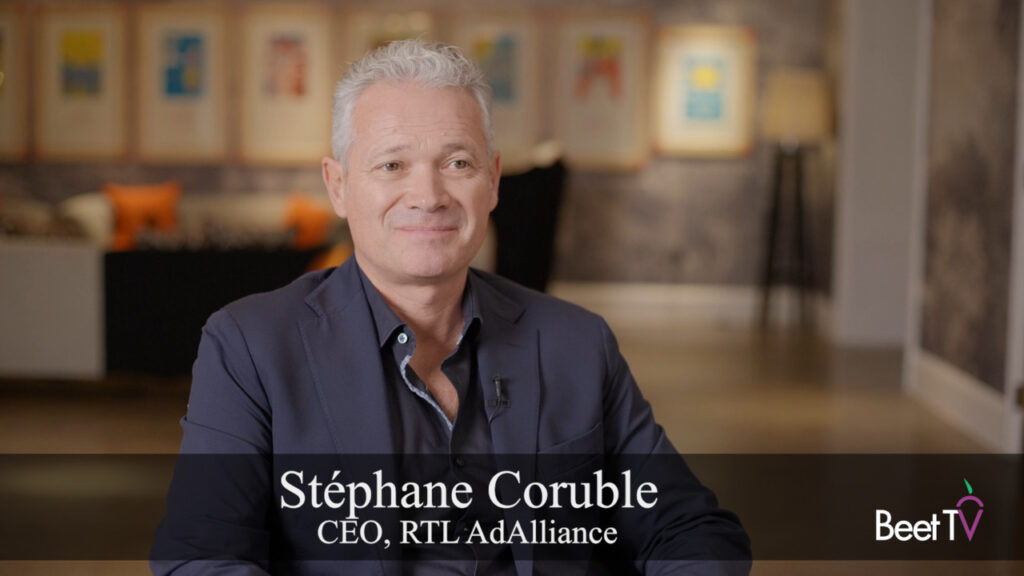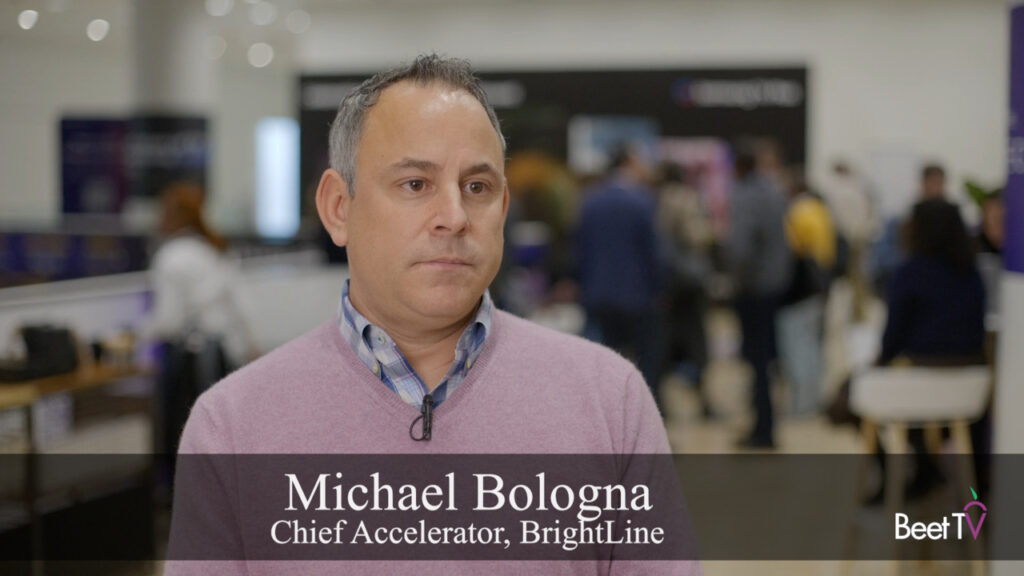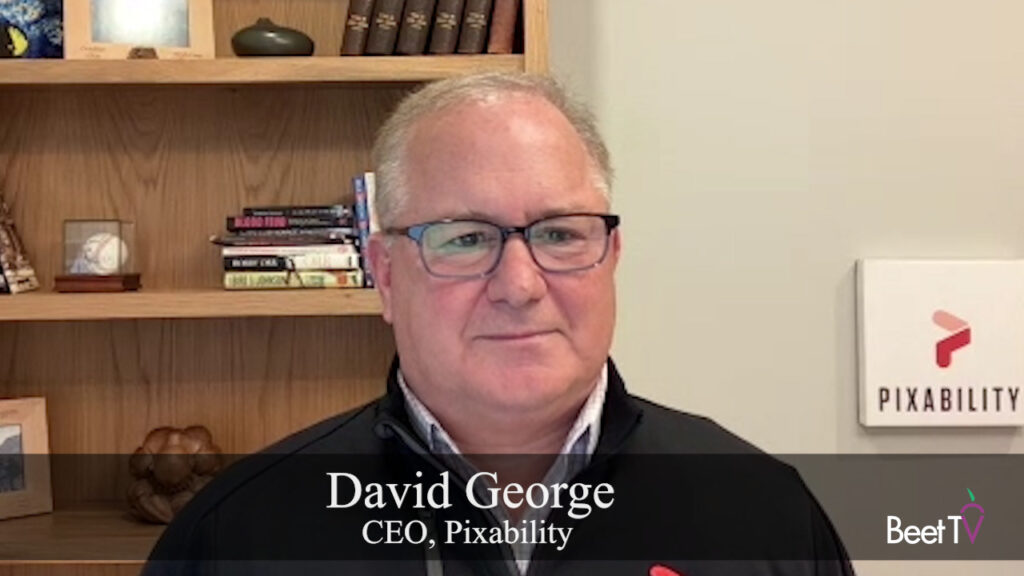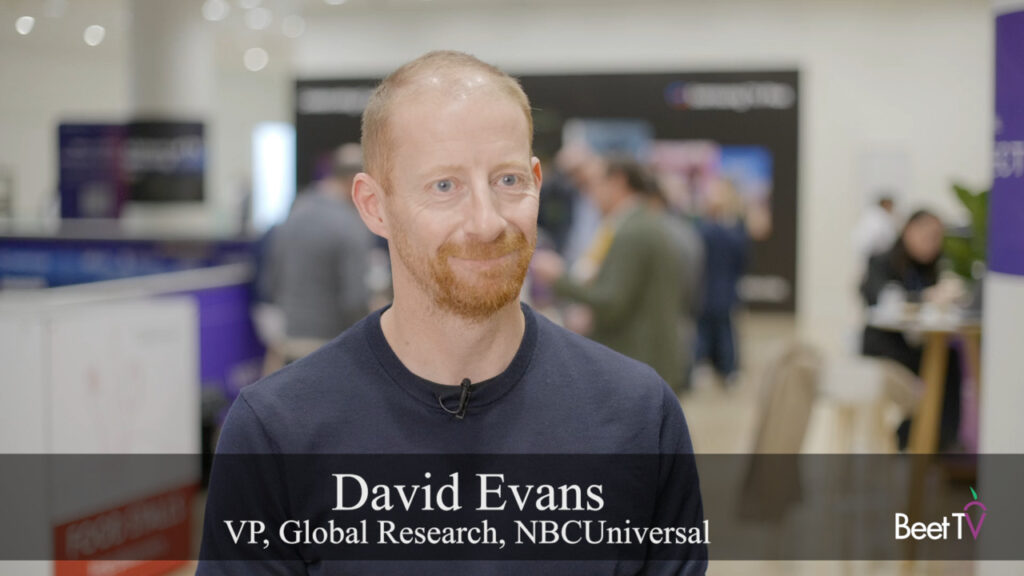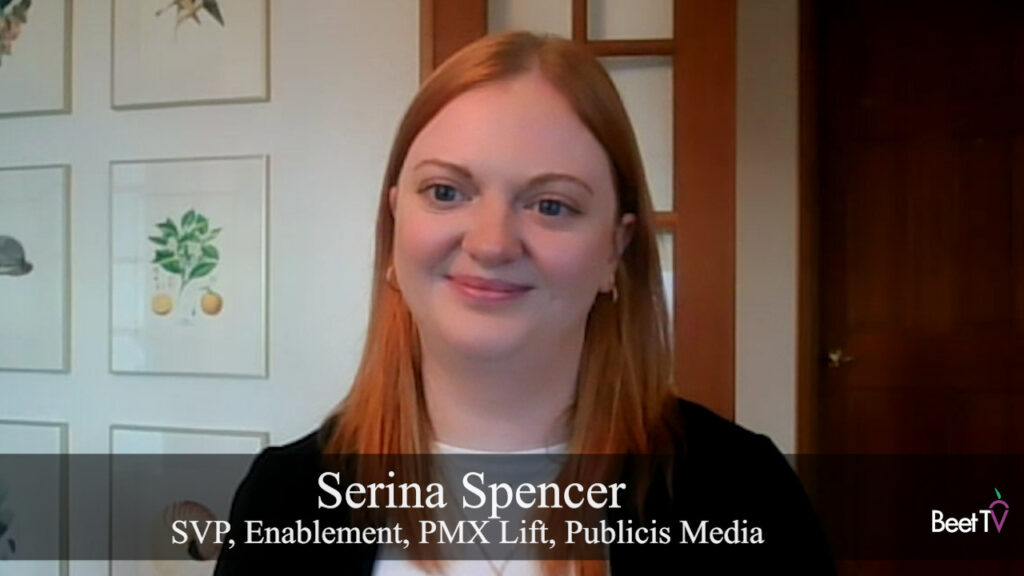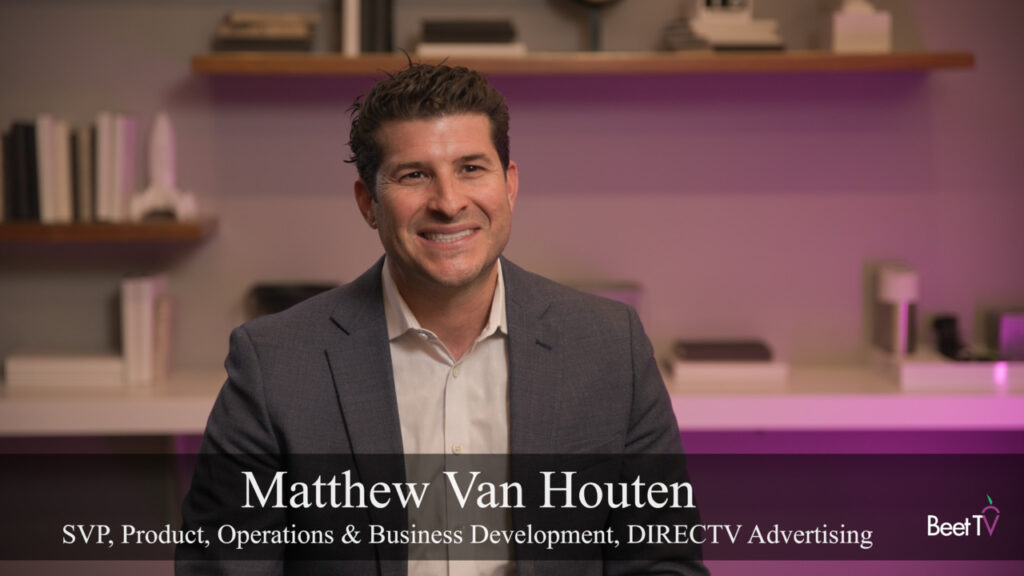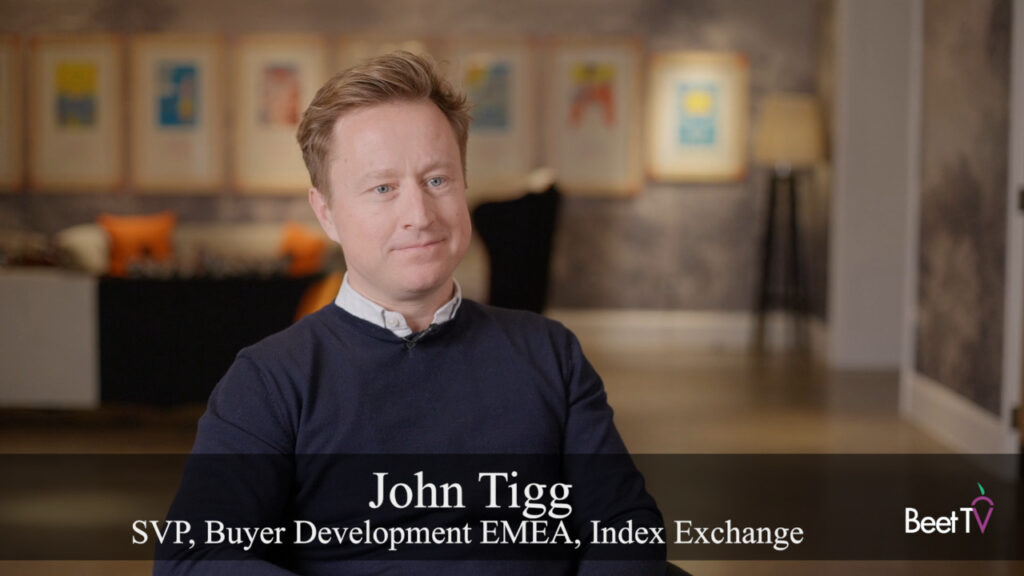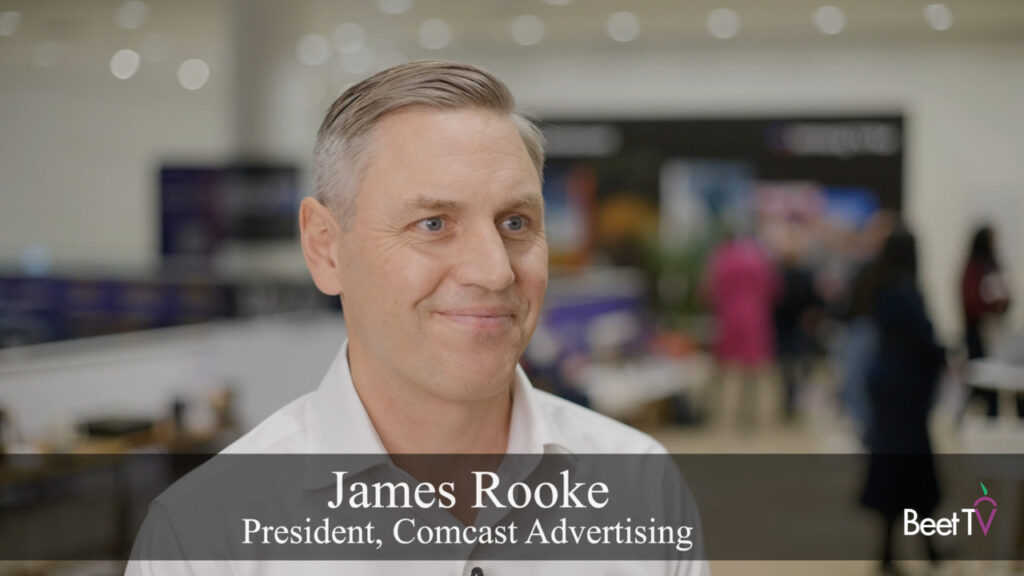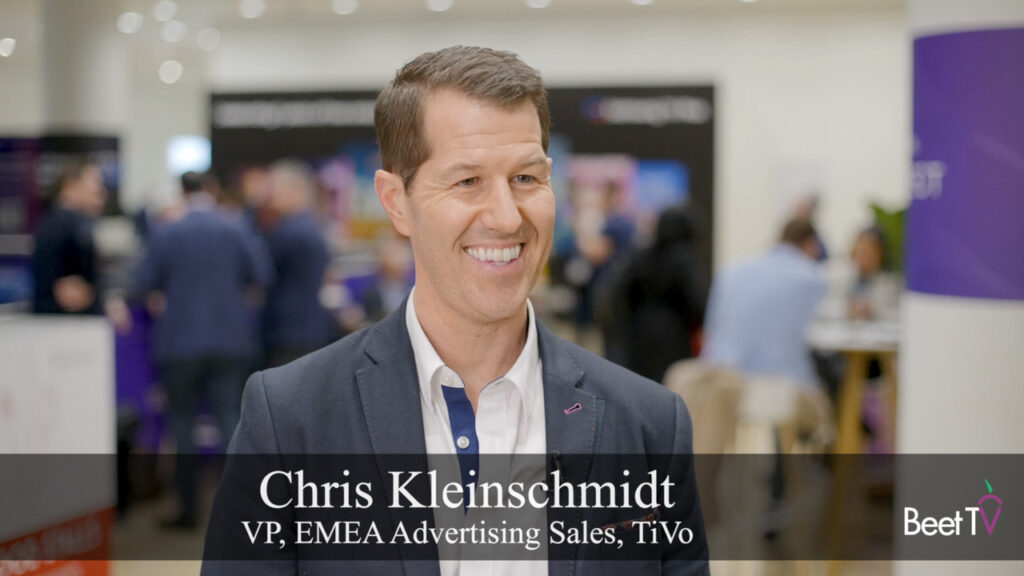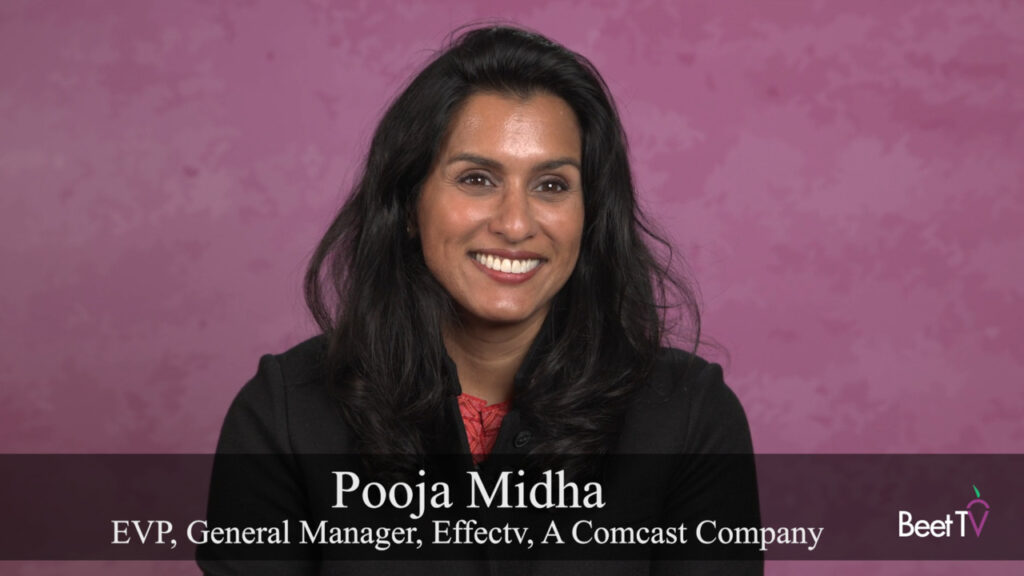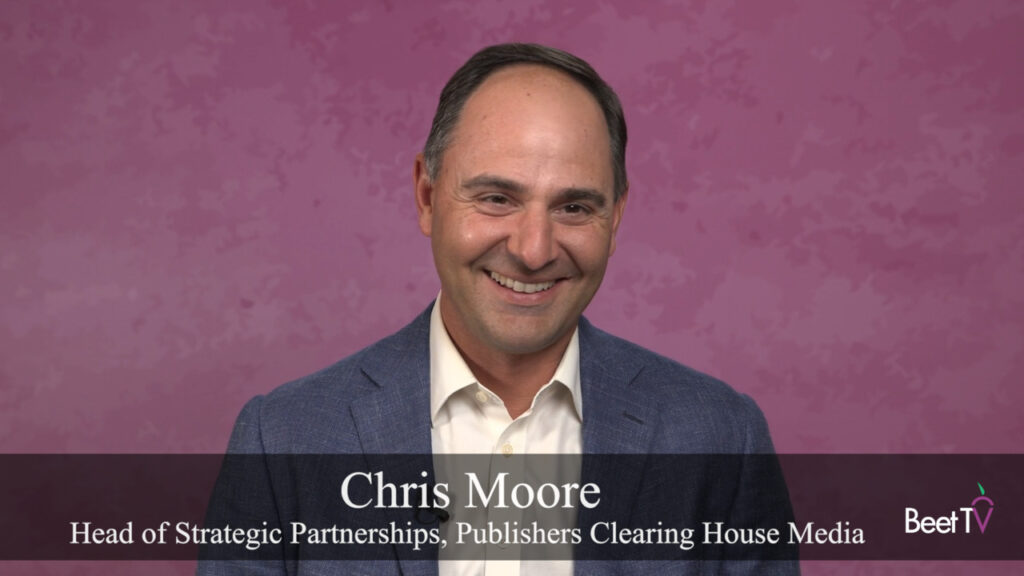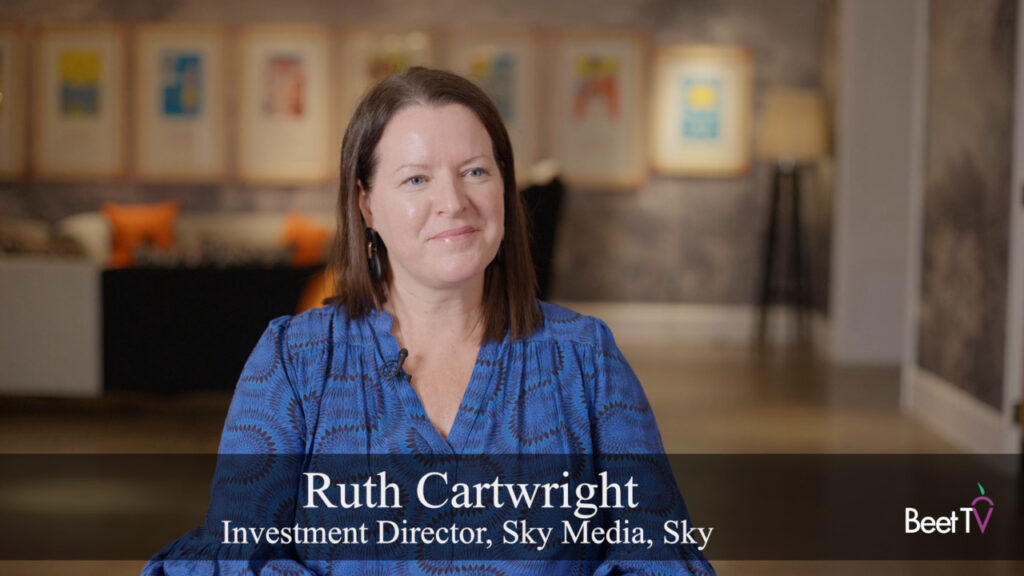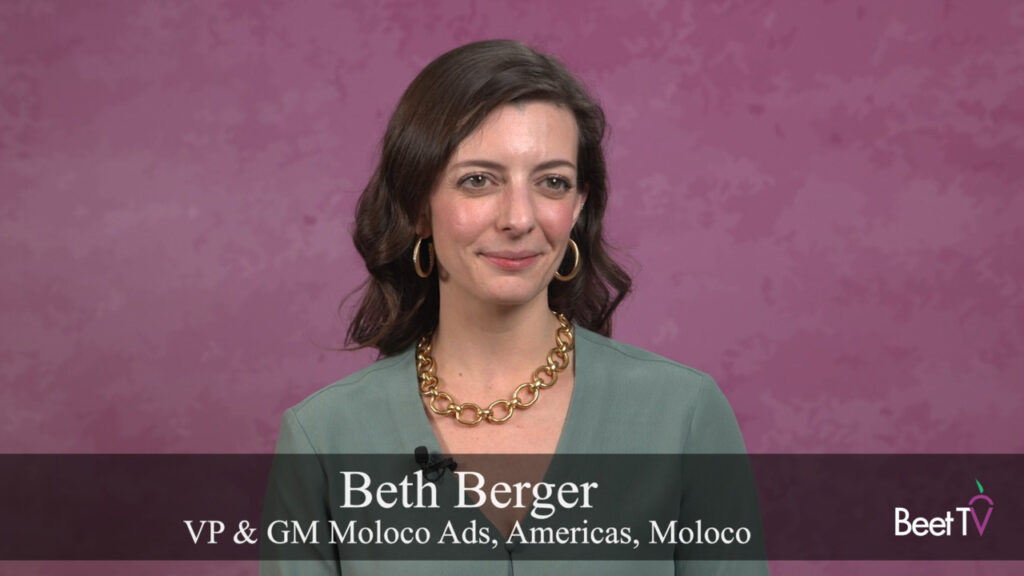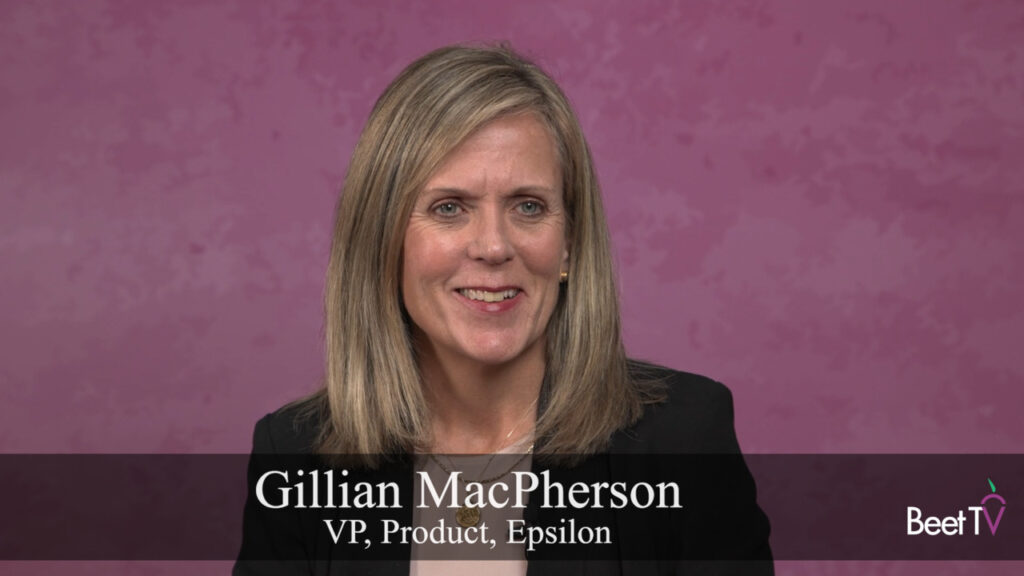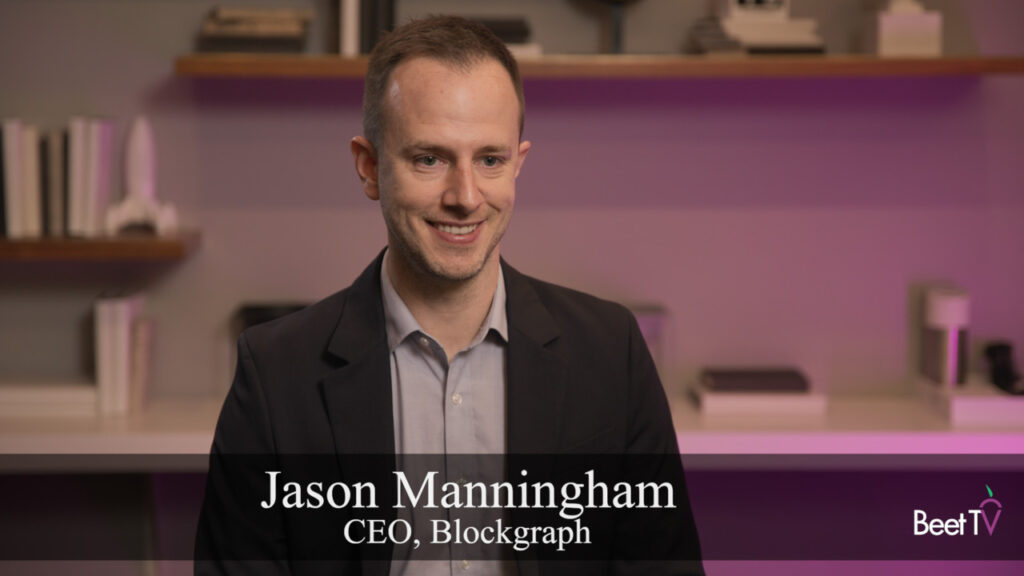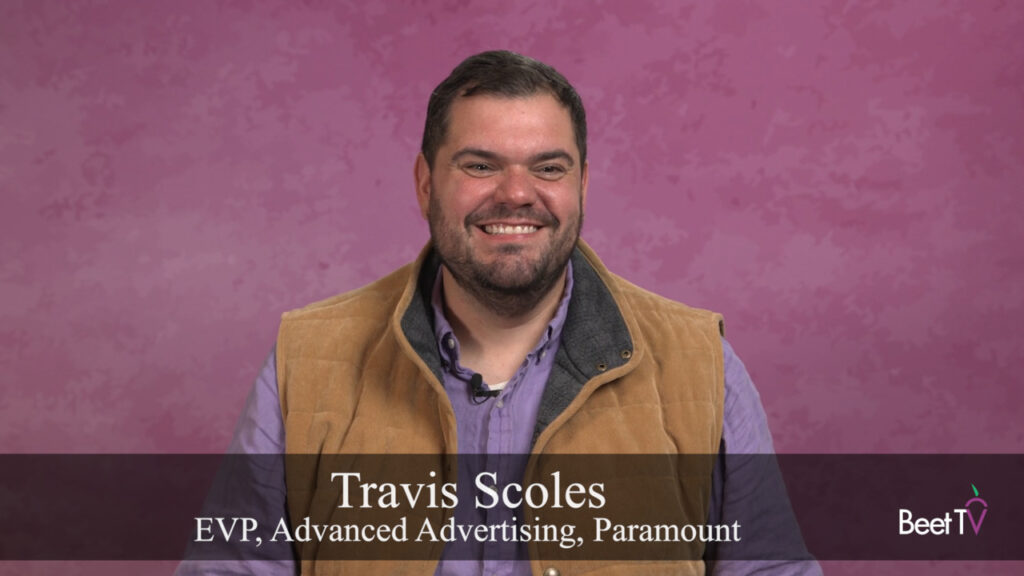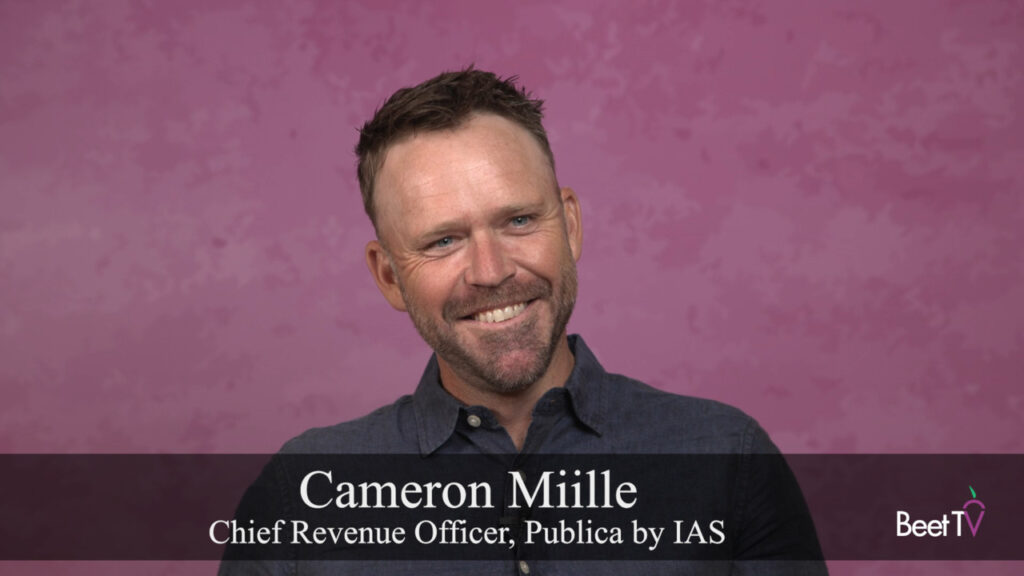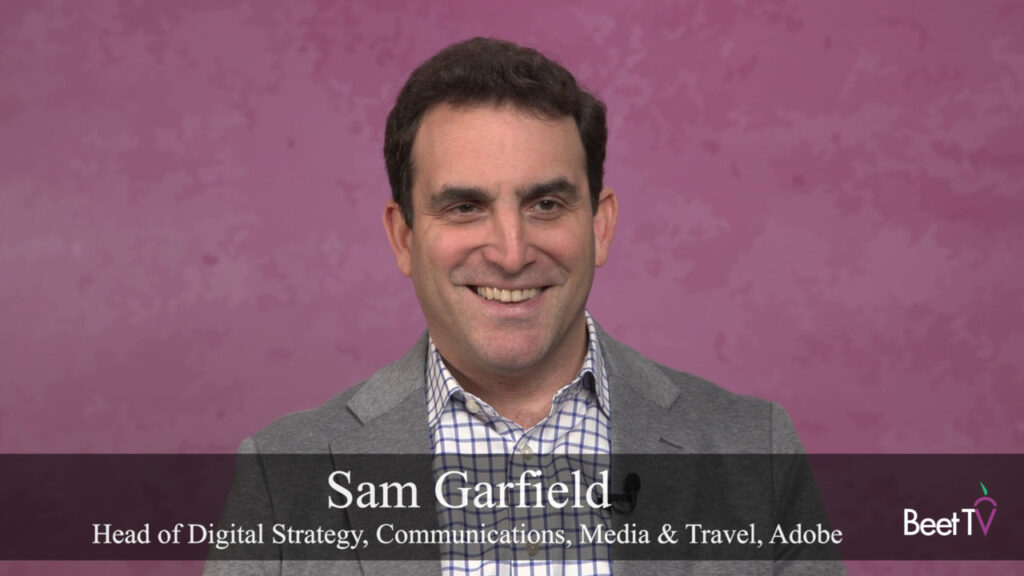
Hollywood, Calif. — Jordan Hoffner, who directs content partnership deals at YouTube, was the keynote speaker at the NAPTE LATV festival last week.
After his speech, Beet.TVs Daisy Whitney caught up with him to speak about metadata, paid search, and how channel partners can monetize their content.
We have extensive coverage of the conference coming up over the next week or so–stay tuned.
Read this round-up of the conference by Chris Albrecht at NewTeeVee.
Andy Plesser, Executive Producer
Video Transcript
Daisy Whitney: Hi there; I'm daisy Whitney reporting for Beet.TV from the NATPE LA TV Fest where Jordan Hoffner, who is the director of content partnerships at YouTube, just delivered his fabulous keynote. Now Jordan, one of the things I was most interested in in your speech, you talked how YouTube is the second biggest search engine on the web, obviously behind Google, so we know that, but what I'm really fascinated by is when you were explaining how people are searching for content. Can you explain that for the Beet.TV viewers?
Jordan Hoffner: Sure, and thank you. Flattery will get you nowhere, but you know search is a very important tool on YouTube and when you have twenty hours of content that's uploaded every minute there's just a lot of stuff on there. So the important…there's a couple of things going on because first of all, you know, they're searching for it by keywords, right, ultimately, and so we are… When we advise companies about, you know, how they can maximize their opportunity and views we tell them, "You know what, having the content is great. Metadata, metadata, metadata, metadata, really important. You know be as explicit as possible and so that the keywords that they're looking for will match up to your content." And then we have a new product, right, that's called you know "Promote Your Video," and so what that does basically is it's kind of like AdWords on Google just for video. So you can put in, you can buy keywords and match that up with what people are searching for and do it.
Daisy Whitney: Okay, so "Promote Your Video"…
Jordan Hoffner: No, this is really important.
Daisy Whitney: No, no, so "Promote Your Video," who uses that? Is that…if I'm an advertiser do I buy "Promote Your Video" against somebody else's videos?
Jordan Hoffner: You can, yeah, or your own.
Daisy Whitney: You can go on now.
Jordan Hoffner: You can buy the content of your own videos right, so but you're buying keywords. So if you are, you know, if you want more views or what have you, we'll give promotion as part of partnership, but also you know you may wanna invest in there and if you're not a partner and maybe you're an advertiser, maybe you want people to see a commercial you've done, or you're just somebody who's trying to seed the market with your content, you may wanna put some money into some keyword buys so that when people are searching for it, then your content comes up.
Daisy Whitney: Okay, so how much control does a brand have over what comes up? Now I'm thinking about this because I know that Eileen Naughton spoke at a previous conference that we covered at Omma Video, and she talked about Wal-Mart and H&R Block, for instance, being marketers who have actual channels on YouTube. Now I went and tested that out and put Wal-Mart in there and, of course, you'll get some negative videos on there about Wal-Mart, sort of like Gary Vainer checks Wine Library TV when he answers his iPhone during it. So you'll find some negative videos. Does a Wal-Mart or any other of your brand partners have any control over what results come up first when you're searching for their name on YouTube.
Jordan Hoffner: You know, buying the the keywords is a good start, but ultimately it's just like Google search, it's an algorithm, right, so there's relevance, there's all these other factors in it that will help, you know, move things up to the top. So you may buy keywords but it may not be what people are actually clicking on, so that will get pushed down you know so I'm not going to get into any boring algorithmic formulas here, not that I would ever understand them, but in any event, the key is that it's usability in addition to, you know, what you're trying to target. So the more you can optimize that, the better off you're going to be in the long run.
Daisy Whitney: You said you're doing some things to improve the search experience on YouTube. Can you expand on that? I mean, what, where do you wanna go with search on YouTube?
Jordan Hoffner: Yeah, I mean ultimately I think we just want it to be…it all goes back to the user, right. We want it to be a good user experience. We want people to be able to find what they wanna find and that it's clear that what they're looking for and and so, and how they're doing it. So there's so many different ways that you can search for content, meaning how it appears, so it's whether it's actual video, on a watch page, or a channel, or a play list, and so we want to be able to simplify and streamline the process as much as possible and, you know, so we're working on that. It's, these are works in progress and we test all the time and try to find the best user experience and ultimately it'll always come back to that.
Daisy Whitney: Now, final question for you. I think there's some confusion in the marketplace about product placement on YouTube. Now if I were selling the New Media Minute and I got Coke as a sponsor and I ran that on YouTube and I'm a YouTube partner in this scenario, do I owe you money?
Jordan Hoffner: Yes, you could.
Daisy Whitney: And how do we get settled with that?
Jordan Hoffner: You know, there's there's bunch of different ways. You know one of the things we do is try to encourage you to, you know, reach back to the advertiser who's integrated and buy a media plan on YouTube so that you're covering your position, so that a competitive advertiser doesn't go on there. Because if Coke wants to sponsor it, chances are that a competitor of Coke has found something about that content that's also appealing and they may do a general buy across YouTube in your demo or whatever it is and those ads may show up, right, so you want to be able to cover your position. You know, the other part is that we do a general sort of CPM thing because you may want to say, you know, you don't want any ads because the ad's already in there, right, basically and so then it's a, you know, per thousand cost, you know, that you pay to us.
Daisy Whitney: So I would be violating my partner agreement then if I'm not sharing that partner revenue with you?
Jordan Hoffner: Yes, so basically in agreement you really can't have commercial messaging in there unless you have some sort of partnership and then we work that out.
Daisy Whitney: Because you're not a non-profit.
Jordan Hoffner: No, we're not a non-profit. We are for-profit and but, you know what, we're trying to figure it out like everybody else and we're trying to make it in a way that scales for folks and so including ourselves so, you know, it's a constant challenge and there's gonna be hiccups along the way. I think ultimately the purpose of the, you know, the direct sponsorships or whatever
you want to talk about product placement is that we just wanna find ways that on can help content owners make money.
Daisy Whitney: So on that whole subject of profitability, which is…profitability is a very good thing for any business, can you make a guess as to when that happens for YouTube?
Jordan Hoffner: You know all I can say is that we work hard everyday to do it and there's profitability two ways, it's revenue, it's costs, right. So we manage both as a business and you know but we ultimately we're focused on making it a great business, okay, and that's the most important thing. I think ultimately we've heard our CEO say, you know, we're still looking for the magic bullet and we're still looking for the magic bullet and so is everybody else, so it's not like we're behind the times or anything like that. If we were lagging the market then things would be different, but we're not.






